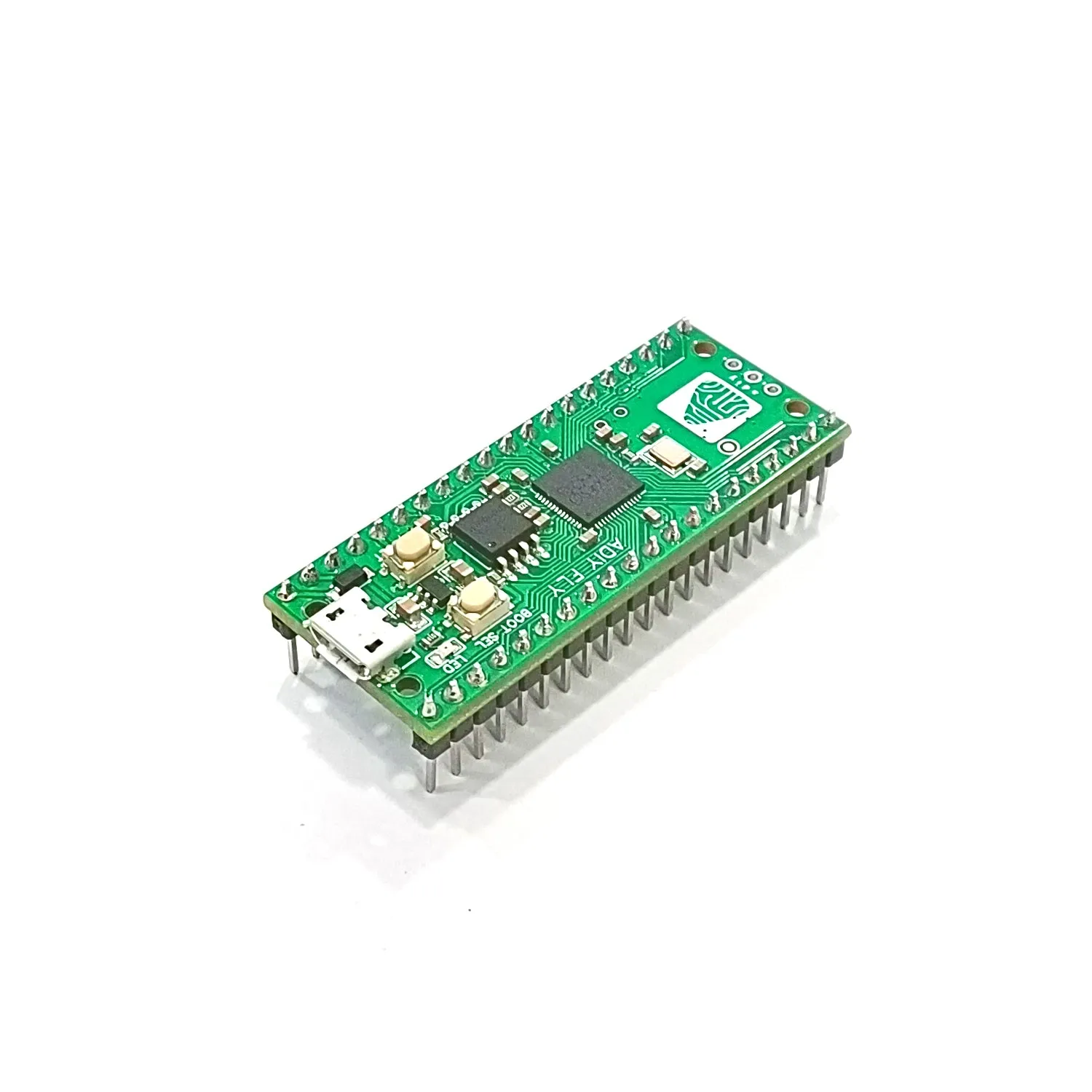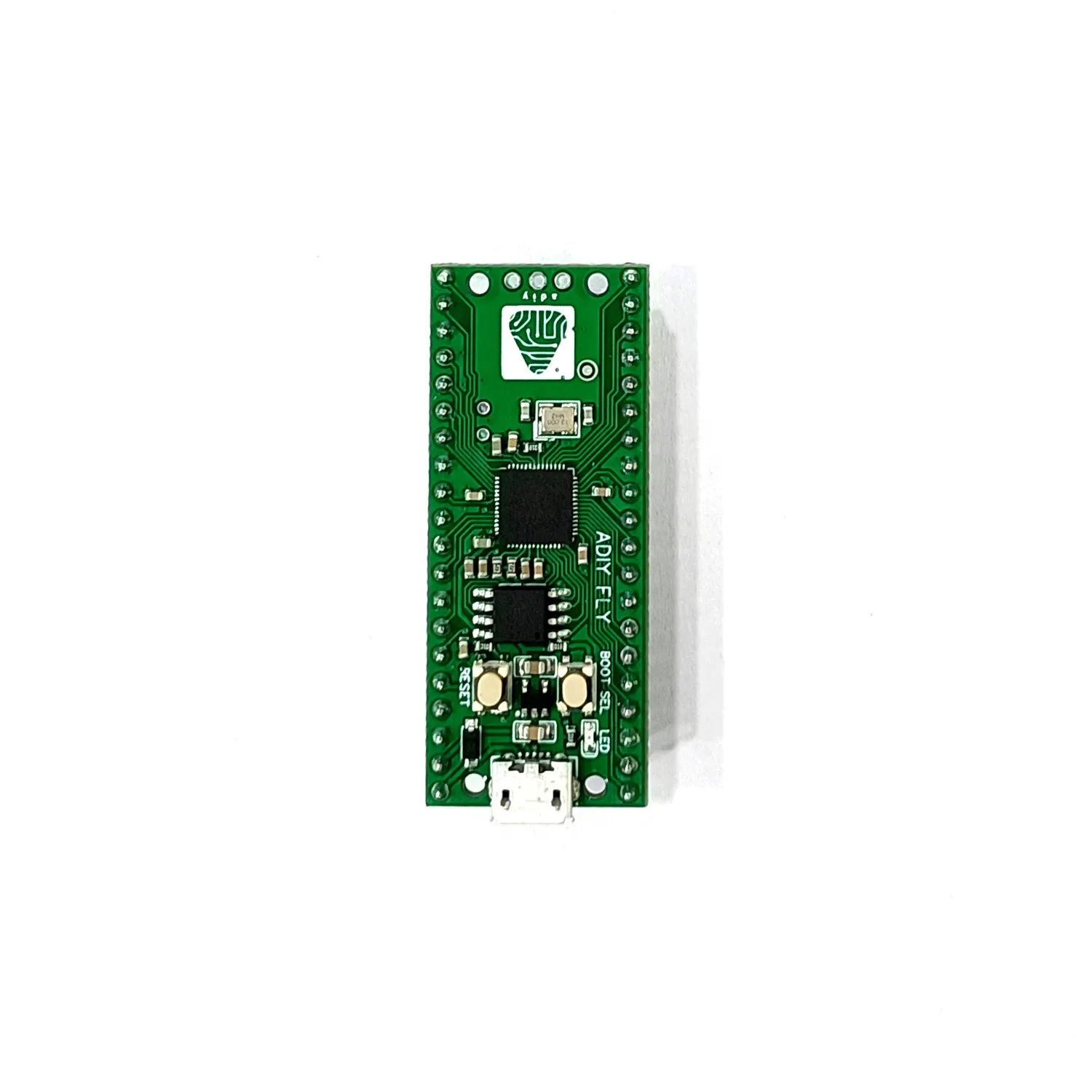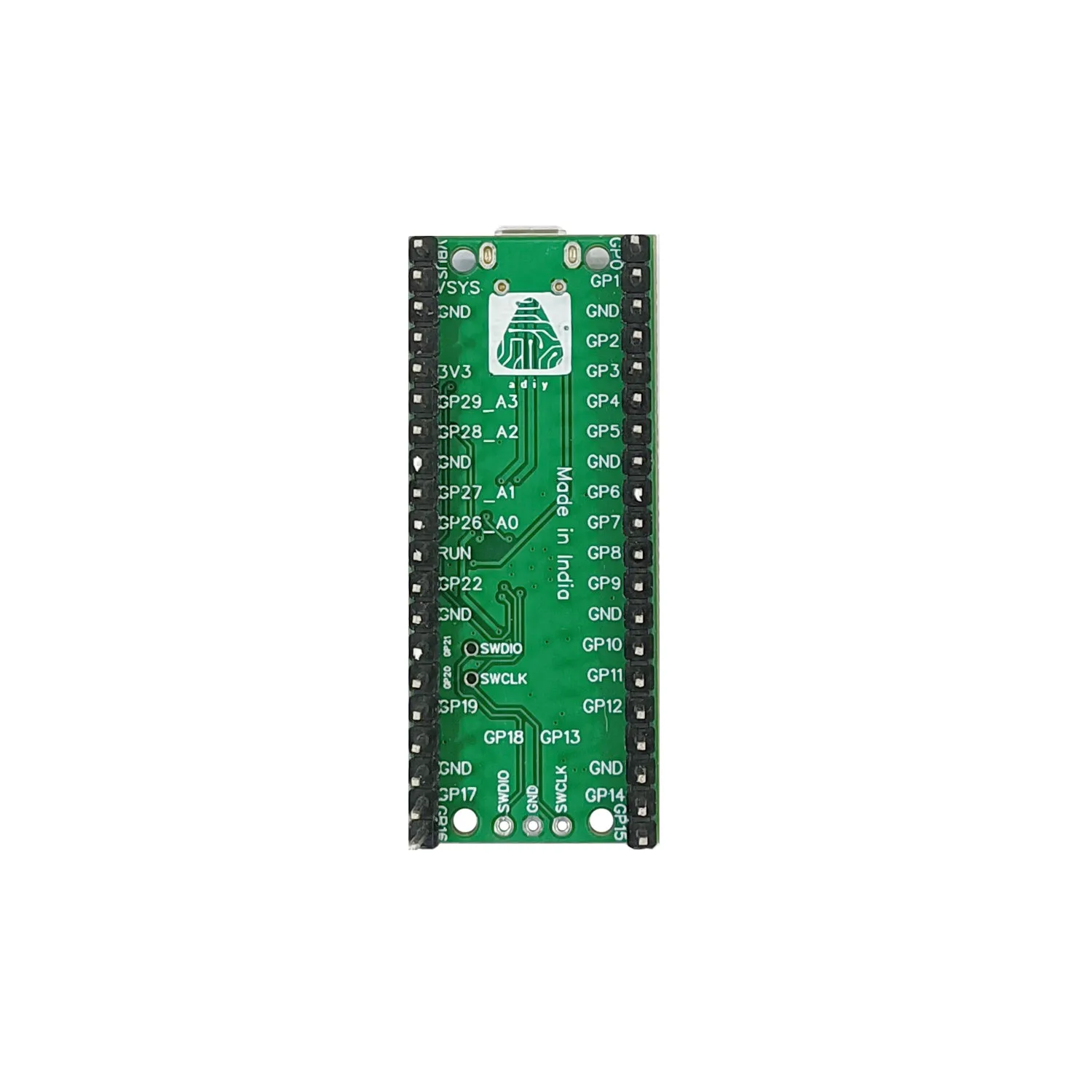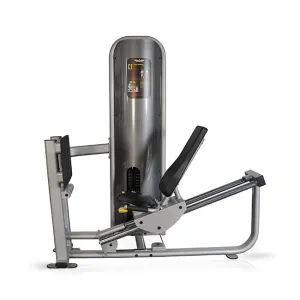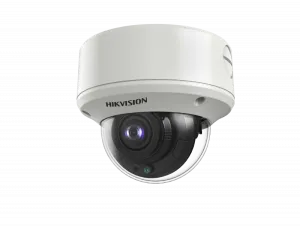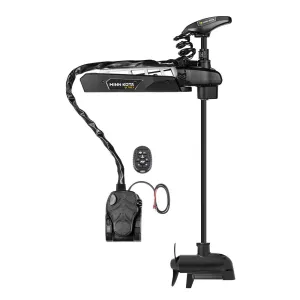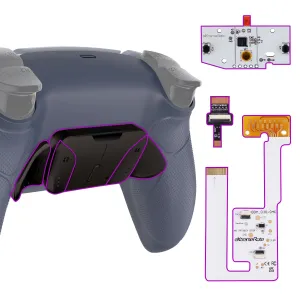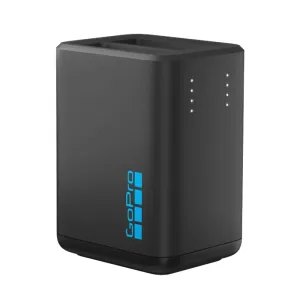ADIY FLY RP 2040
ADIY FLY comes with a large on-chip memory, symmetric dual-core processor complex, deterministic bus fabric, and rich peripheral set augmented with a unique Programmable I/O (PIO) subsystem, RP2040 provides professional users with unrivalled power and flexibility. ADIY FLY pairs RP2040 with 4MB of Flash memory, and a power supply chip supporting input voltages from 1.8-5.5V. It provides 26 GPIO pins, three of which can function as analog inputs, on 0.1”-pitch through-hole pads with castellated edges. ADIY FLY has SD card slot installed. The RESET button on ADIY FLY makes the usage of the module easy.
Why is the Board called Pico RP2040 Board – ADIY FLY?
- Number of processor cores (2)
- Loosely which type of processor (M0 )
- floor(log2(ram / 16k))
- floor(log2(nonvolatile / 16k)) or 0 if no onboard nonvolatile storage
RP2040 is manufactured on a modern 40nm process node, delivering high performance, low dynamic power consumption, and low leakage, with a variety of low-power modes to support extended-duration operation on battery power.
Key features: Pico RP2040 Board – ADIY FLY
- Dual ARM Cortex-M0 @ 133MHz
- 264kB on-chip SRAM in six independent banks
- Support for up to 16MB of off-chip Flash memory via dedicated QSPI bus
- DMA controller
- Fully-connected AHB crossbar
- Interpolator and integer divider peripherals
- On-chip programmable LDO to generate a core voltage
- 2 on-chip PLLs to generate USB and core clocks
- 30 GPIO pins, 4 of which can be used as analog inputs
Peripherals: Pico RP2040 Board – ADIY FLY
- 2 UARTs
- 2 SPI controllers
- 2 I2C controllers
- 16 PWM channels
- USB 1.1 controller and PHY, with host and device support
- 8 PIO state machines
Resources: RP2040 Board Pico – ADIY FLY
Documentation for Pico RP2040 Board – ADIY FLY and other RP2040-based boards.




